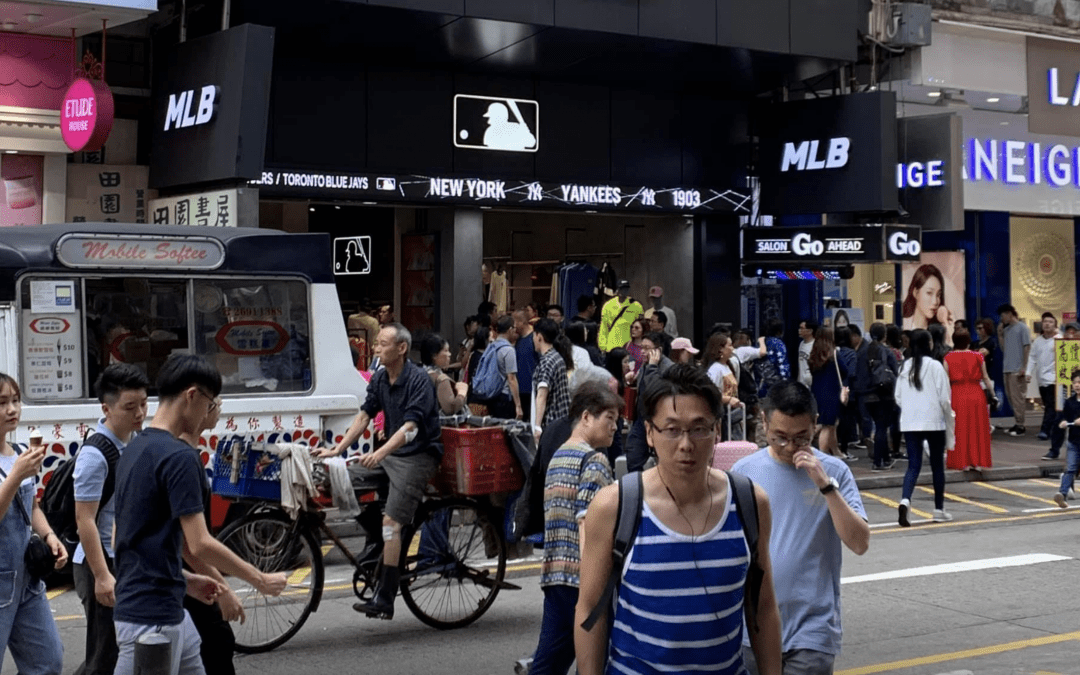
May 11, 2019 | Business Distinction, ICONIC, Leadership
Recently, I spoke at an event an organization was sponsoring
for its top franchisees. Each person in attendance ran a business that
generated at least hundreds of thousands – and for most, multiple millions – of
dollars in revenue. As a bonus for the best franchisees, the leader of the
group mentioned that they were going to make it available for a few of them to
have me to come to their respective businesses and work with their teams.
Guess who was the first to jump up and make it happen? The
owner of the most successful business in the room.
Want to guess who did not accept the organization’s generous
offer? The owners of the least successful businesses in the room.
This isn’t an unusual occurrence. Those who grow great
businesses jump on ideas and programs to make their organizations better. Those
who are less successful – for some strange reason – tend to think they don’t
have time to learn and train themselves and their teams. They attribute the
success of others – selling the same product at the same price in the same
region – as luck (“I was dealt a lesser hand of cards to play…”), the economy,
or anything other than their own lack of commitment and effort.
Please don’t misunderstand – it’s not about whether they
chose me or not. That’s not what I’m suggesting in the least. The leader of the
organization remarked to me before the offer was made that it never fails:
regardless of the possibility or promotion, the best performers take advantage
of every opportunity immediately; the laggards seldom, or not at all.
So – how about YOU? When something doesn’t work out
for you…personally or professionally…or your organization faces a difficult
time or task – do you seize opportunity or keep grinding it out the way you’ve
always done it?
Too many of us attribute declining success to a lack of
intensity. We decide we’re going to “hustle” and “crush it” by rededicating our
efforts to harder work and a stronger push.
The problem is this: working harder on the wrong plan
won’t generate more profitable results.
The challenge for all of us is to jump at opportunity, be
willing to learn and alter our approach, and be a model of growth for those who
depend upon our leadership.

Apr 21, 2019 | Customer Experience, ICONIC, Leadership
In almost every book I’ve ever written — and there have been quite a few at this point — I quote the best business advice I have ever heard. It’s from my friend, Dr. Michael LeBoeuf, from his work that was originally titled, “The Greatest Management Principle in the World.” Here it is:
“Behavior rewarded is behavior repeated.”
The problem — and wisdom — in this phrase is that it’s so much more profound than it originally appears. Of course, it means that our customers and employees will repeat the activities that we compensate them for executing.
However, more subtle is that it also challenges us to question: What actions are we rewarding?
For example — we want sales professionals to establish relationships with customers rather than pressuring them into a solitary closing. Yet, when we examine their compensation structure, we find there’s no additional incentives for future purchases.
In other words, we give lip service to how important that on-going loyalty from our customers. However, when we examine what we reward, it appears our focus is on closing (through any means available and ethical) a single transaction.
My friend, former Chief Customer Officer at Microsoft and Lands End, Jeanne Bliss, often mentions in her presentations the story of the hospital that posted every physician’s evaluation from patients and their families. The result was that malpractice suits dropped by 43%. When receiving high marks from patients and families was rewarded, doctors responded — to the benefit of hospital, physician, and (most importantly) customers that are called “patients.”
That’s the challenge that I make to you. Take a bit to re-evaluate what you’re rewarding and examine if it’s congruent with your goals and aspirations for the future. My guess is that you’ll find some disconnection.
If you resolve it, you’ll be rewarding the behavior and activity that your desire. It’s an important step to creating distinction!

Apr 14, 2019 | Business Distinction, ICONIC
After six days and five nights in Hong Kong, I am now prepared to offer a thorough evaluation of a city that has existed for thousands of years.
OK, I know that I’m not qualified to make any more than a “first impressions” commentary. However, there are three aspects to Hong Kong I picked up that are relevant to your business and mine.
#1) A city’s — or office’s — “energy” is a real thing.
Frankly, I tend to be a bit reticent about new age aspects like “the Universe” or “vibes” — however, there IS an energy to Hong Kong that is real and electric. Many other professionals on our trip mentioned it, as well. And, a significant portion of it comes from the enormous volume of people on the streets.
I remember a study from years ago about Indianapolis. It was known then as “India-NO-PLACE” because it was such a boring city. What the researchers told the community leaders was that a city was often judged by the energy it generated, based on people on the street. If no one was on the street, it was easily assumed there was nothing to do and the city was dying.
Indianapolis placed two major sports arenas — then the Hoosier Dome and Market Square Arena — downtown. It’s easy for locals to forget what a huge gamble that was, for at that time, most everyone lived in the suburbs…dined in the suburbs…shopped in the suburbs…and, unless they were going to and from work, stayed away from downtown. The result of the sports initiative was that restaurants sprung up to feed the fans attending the sporting events and concerts, which generated a “buzz” about downtown, which meant more people wanted to live and shop there. (Which, of course, would lead to more restaurants, hotels, condos, and more — and became practically a self-fulfilling prophecy.)
If you haven’t been to downtown Indy in the past few years, you’re missing a real treat. It has some of the best restaurants in the nation, the largest Children’s Museum in the world, and so much more…downtown. Salesforce has its second biggest campus in downtown Indianapolis and the tech scene is thriving and attracting thousands of Millennials to move there. The “energy” of my old hometown is a real thing.
What does this mean to your business? For some reason, we don’t want to do business with someone or someplace that isn’t busy. I don’t want the accountant who has all the time in the world or the lawyer with nothing on her calendar. I don’t like dining at an empty restaurant or shopping in a deserted store.
Make certain you provide the appearance that doing business with you is one of the hottest things to do in town.
#2: Our opinion on much is based on little — so everyone matters.
I left the Hong Kong airport, and met Max…my guide to the hotel and for the week. Max was smiling and enthusiastic. He told me how much he loves Hong Kong. The driver of the car I took to the city was happy. The hotel desk clerk seemed to genuinely emphasize how much they appreciated my five-night stay. I was hungry after my long flight from Sydney — and not feeling a sense of culinary adventure at that point — so I walked across the street to McDonald’s. The clerk was helpful and cheerful.
I decided I loved Hong Kong. Sure, part of it was the overwhelming nature of the city’s skyline. Part was the unique feel of being in a very different land. However, four individuals and their attitude formed the majority of my opinion about a city of almost eight million people.
Your community isn’t going to manage the attitudes of your employees. But, you can. Are they generating the impressions on your customers that I have about Hong Kong?
#3: Live YOUR culture
It’s pretty obvious that Hong Kong does not want to be like the United States. Sure, there are more than enough KFCs and McDonalds to go around — but, more important, they take great pride in the local cuisine. They revel in their customs and they way they do things. (Meaning, “You can do things how you want to when you’re at home — here, you’ll do things our way.” It’s a message delivered with a humble posture and broad smile.)
An often-heard frustration was directed to those they called “Chinese immigrants” — in other words, people from mainland China who were taking advantage of the relatively new relationship between Hong Kong and China. According to lifelong residents, many have moved from mainland China to live in their city and receive their benefits without contributing to the system like someone who had grown up in Hong Kong.
Even though I was technically in China, Hong Kong has its own currency — the HK Dollar — that is separate from the Chinese system. Every car in Hong Kong drives on the left side of the road — like the British Colony it formerly was — unlike the rest of China that drives on the right side. It’s just more ways of demonstrating that Hong Kong lives its culture — which it views as separate and distinct.
What’s your culture? Do you have it defined as precisely as Hong Kong has theirs? Do you know how it compares and contrasts to other organizational cultures — just like Hong Kong knows how their culture is unique from the traditional Chinese?
You cannot live a culture if you aren’t certain of its values.
Start there. Start with developing your core values — and the live and grow your organizational culture.
Hong Kong may be the most vibrant place I’ve ever been. I can’t wait to return.
Wouldn’t it be fantastic if I felt that your business was that iconic?



